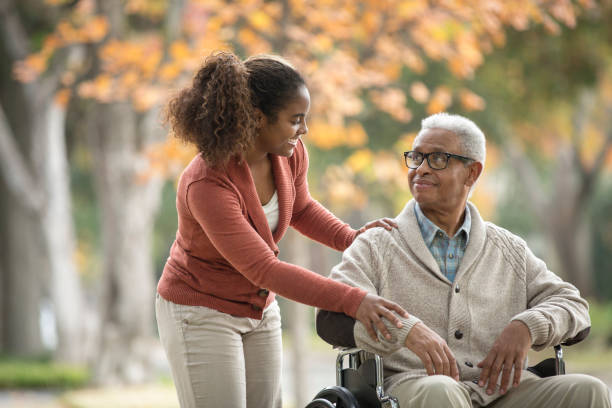
You’ve beaten the odds of surviving a stroke and there is nothing more precious than being alive after having a near-death experience. A stroke can happen to anyone at any time and it can affect everyone in various ways. But guess what? You’re a survivor and you can live a successful, healthy and productive life.
RELATED: My Story: “There Is Life After Stroke”
Although you or your loved one may be experiencing some changes after the stroke, things will get better and improve over time. When someone experiences stroke symptoms, it forms as a “brain attack”. Usually, when a stroke comes on you may experience sudden dizziness, a headache and numbness in your limbs on one side of your body.
Here are some of the common stroke disabilities or symptoms you may be experiencing after your stroke:
- Thinking, perception, and memory difficulties
- Vision complications
- Emotional/ behavioral problems: difficulties controlling mood swings
- Challenges with speech or understanding language
- Problems relating to paralysis or movement
- Adjusting to being a caregiver or providing self-care.
A stroke usually happens when a blocked artery or when a blood vessel within the brain bursts cutting off the flow of blood and oxygen to your brain causing your brain cells to die.
This unfortunate health crisis can cause death or a disability depending on the severity of the stroke which could result in permanent damage within the body. The damage can impact your mobility, your way of life and your mood and personality.
Sometimes these sudden changes can be difficult to overcome especially if you were independent and now have to depend on your family to be a caregiver.
The adjustments can take some time to get used to but you can still live life to the fullest if you come to grips with yourself that although it’s tough now, you are a survivor and an overcomer.
RELATED: Walking After a Stroke Can Boost Survival
Here are a few helpful tools we’ve gathered to assist you and put you on the road to recovery after surviving a stroke:
Support Team
Before we talk about pain or any other symptoms get your support team together. You will need all the emotional and physical help possible to get you through these challenges. Your doctor may have a rehabilitation plan for your health going forward depending on areas of the body that were affected by the stroke.
For example, your rehabilitation plan may include a speech pathologist, occupational therapists, physiotherapists and more. This team of professionals will help you strengthen your limbs that may have been paralyzed by the stroke. You may have to relearn your language skills or perhaps adapt to using a cane or devices to assist you when you need to do self-care or bathing.
Pain Management
If you are looking for ways to manage pain such as headaches, shoulder pain, tingling and burning within the body just remember that these issues will go away in time and may take up to six months to do so. Just make sure you inform your doctors about the type of pain you are experiencing and you may be prescribed medications or if you are holistic you can explore mind, and body exercises or visit a herb or natural grocer within your area to assist you with pain management.
Memory Challenges
Your memory may not be as sharp as it used to be after surviving a stroke, but don’t beat yourself up about it. Being able to recall certain details about what you ate for breakfast or the names of your family members can be difficult after a stroke but have patience with others and yourself. Until you get stronger, get a notebook and write down important things, use sticky tabs, use a planner and get into the habit of putting things away in the same place to make it easier for you to locate things later.
RELATED: Can You Do Stroke Rehab At Home?
Cognitive Issues
Having a stroke can put you literally on an emotional roller coaster and you may feel as if you’re not yourself. This is where your support team comes into play. Find someone you can trust to discuss important matters or assist you with shopping or travel until you’re able to make the right choices for yourself.
Personality Changes
Do you find yourself acting the opposite of how you may feel? For example, you may cry instead of laughing or say something offensive to someone but may not realize it. These changes in your behavior are all normal for someone who has experienced a stroke. It will take time, patience and support from your team to help you get back on track. If you find yourself getting overwhelmed, take a break, regroup and ask for help. Don’t rush your healing.
Caregiver/Self-Care Changes
It’s not easy being a caregiver or taking the “backseat” temporarily while someone does your basic needs. But just remember this is just temporal until your loved one gets stronger. While you are adjusting to the new roles make sure you give yourself and others more patience and kindness.
Before you get overwhelmed, take a break and seek help from a support buddy to help assist you with the daily routines, doctor visits and more. Remember you will get better and as time goes on, the challenges will no longer be a challenge.
The road to recovery after surviving a stroke isn’t easy but things will get better in time.








